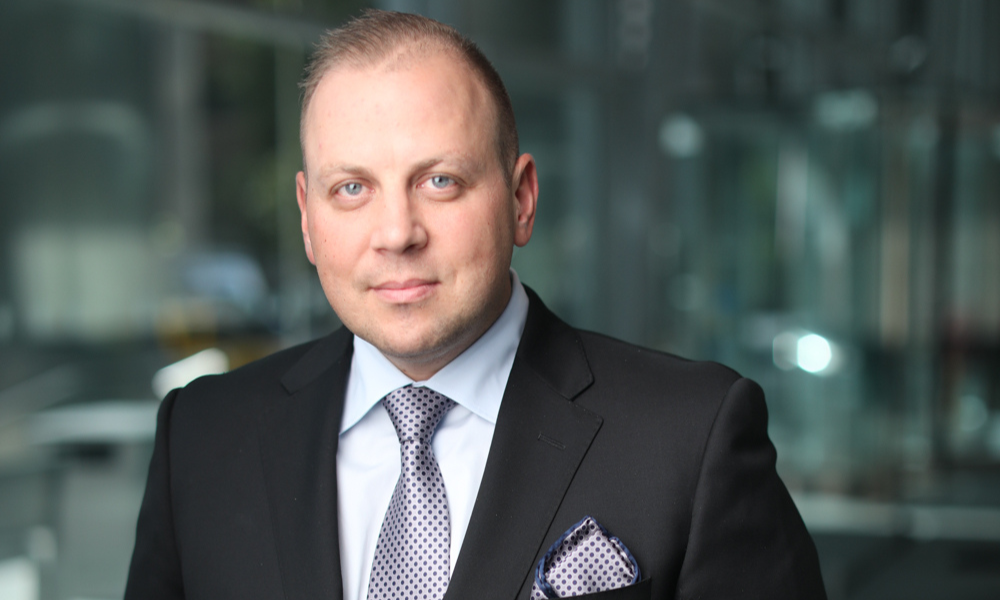'Portfolios are like soap bars: the more you play with them, the smaller they get,' says PM

When the Federal (Fed) Reserve raised its interest rate by .75 again yesterday, some were disappointed it was that aggressive, but the market barely moved because it was expecting it.
“The consensus expectation was that we were going to see a 75 basis point hike today,” Chad Larson, senior portfolio manager and senior investment advisor and founder of the Alberta-based MLD Wealth Management with Canaccord Genuity Corp., told Wealth Professional. “But, some people were expecting they might clawback and only do a 50 basis point hike to slow their cadence.”
Larson was watching to see if there might be any dissent among the seven governors, which might signal that the Fed would slow its aggressive hiking by September. But, he said, “the way I read it is the Fed is going to maintain its hawkish stance”.
“To get nominal GDP (gross domestic product) in line and cool inflation, the Fed would have to raise interest rates by 350 basis points. That would cause a housing crash and so much that you couldn’t do battlefield triage. So, at this point, the Fed decision to stay hawkish is going to keep pressure on its Asian counterparts to speed up their monetary tightening as well because, with globalization, we’re all in the same bucket together.”
Talking to clients remind him that we’re in a hyper-volatile time. He defines recession as two quarters of negative growth, which we’ve already had, even though he said that President Joe Biden thinks the term should be redefined as the U.S. heads into its mid-term election this November with rising interest rates and inflation already at 9.1%.
Larson said the rate hikes are meant to cool the economy, but the job market is still robust and there’s still pressure on prices with demand exceeding supply. So, it takes time to see if the process needs to be accelerated, but Larson said its hawkish moves will cause a slowdown in the housing market and create excess inventories since people will decrease their consumption.
“We have a fiscal policy driven recession in front of us,” said Larson, citing Shopify’s recent 10% workforce cut. “But, on the other side, we’re seeing markets rallying, even with bad news. When the market does not go down on bad news that means it is bottoming.”
Larson expects the Feds to keep raising rates in September and “whether they slow down their cadence or not will be more politics than policy because they are going into a mid-term election cycle in November But, ultimately, the economy needs to cool. Unemployment needs to rise. Housing needs to correct.”
“Once the Fed does signal a change, and it does become less hawkish, the market will react positively because it’s a forward-looking vehicle. By Q4, we’re already trading well ahead of 2023 estimates, and companies aren’t doing badly. It’s the economy that’s doing badly.”
Advisors who’ve been preparing for these times shouldn’t have to make many portfolio adjustments, said Larson, noting that “during periods of hyper-volatility, portfolios are much like soap bars: the more you play with them, the smaller they generally get.”
He added that advisors are doing a lot of portfolio rationalization right now because people have paid a lot of taxes in the last couple of years.
“The recovery is going to be led by best in class, large cap liquid names. There is a lot of free cash flow that’s being generated by the energy cycle and by the metals and materials companies,” he said. “Canada’s built quite well, but there’s incredible discounts on the other side of the border of companies that have been largely lumped into the bad category.
“So, what portfolio managers should be doing now is reviewing and refreshing their long-term plans and being steadfast in their communication that the events of a couple of quarters won’t derail long-term plans as long as clients stay true to the plans. The further you step away from this, the smoother it gets.”
These comments are solely those of Chad Larson and not Canaccord Genuity Corp.



